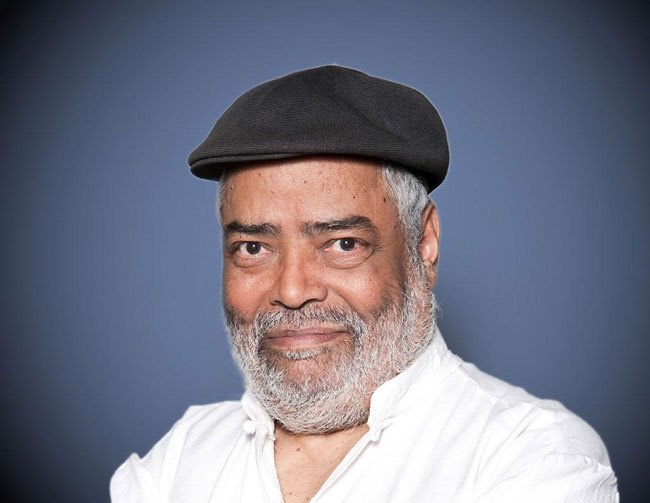

Med Hondo was a founding father of African cinema. Born in Morocco, in 1935, he attended French and Muslim schools before studying to become a hotel chef and migrating to France in the late 1950s. It was through the theater that Hondo began his artistic practice, first in Marseille and then in Paris. With a career spanning six decades, Hondo made thirteen films, including Soleil Ô (1970), which won the Golden Leopard at the Locarno Film Festival; Les Bicots-nègres, vos voisins (1974), his second feature, which garnered the Golden Tanit at the Carthage Film Festival; and West Indies: The Fugitive Slaves of Liberty (1979), which consecrated his absolute mastery of the film form.
After these tours de force, he directed three additional documentaries, including two devoted to the liberation struggle of Western Sahara. Sarraounia (1986), his sumptuous anticolonial epic, won the Stallion of Yennenga at Africa’s most important film festival, FESPACO. He then directed two features in the 1990s, Black Light and Watani: A World Without Evil (1998), followed by his testament film, Fatima, the Algerian Woman of Dakar.
From 2004 until his passing, Hondo devoted his energies toward trying to fund, cast, and direct what he saw as the crowning film of his career, Toussaint Louverture: The First Among the Blacks. However, the political economy of both African and world cinemas contributed to making the film impossible. On March 2, 2019, Hondo passed away in a hospital in Paris, bequeathing an immeasurable cinematic and artistic legacy to generations of moviegoers to come.
Mauritanian French director Med Hondo’s West Indies: The Fugitive Slaves of Liberty, presented at THFF25 in a new restoration, proved a watershed event for African cinema—the continent’s first musical as well as a sui generis amalgam of historical epic, Broadway revue, Brechtian theater, and joyous agitprop. Using an enormous mock slave ship as the film’s only soundstage, Hondo mounts intricately choreographed reenactments and dance numbers across his multipurpose set to investigate more than three centuries of imperialist oppression. The story traverses the Caribbean, Europe, Africa, and the Middle Passage; jumps across time to depict the effects of official French policy upon the colonized, the enslaved, and their descendants; and surveys the actions and motivations of the resigned, the revolutionary, and the powers that be (along with their lackeys). No mere extravaganza, West Indies is a call to arms for a spectacular yet critical cinematic reimagining of an entire people’s history of resistance and struggle.
We are pleased that THFF alumna filmmaker Annabelle Aventurin, who oversaw the restoration of West Indies, will be present for a special introduction to the film.
West Indies: The Fugitive Slaves of Liberty screens at THFF25 as part of the retrospective program You Don’t Get Freedom, You Take Freedom: Caribbean Activist Cinema 1978–1985.
This screening is presented in partnership with

Miami Workers Center